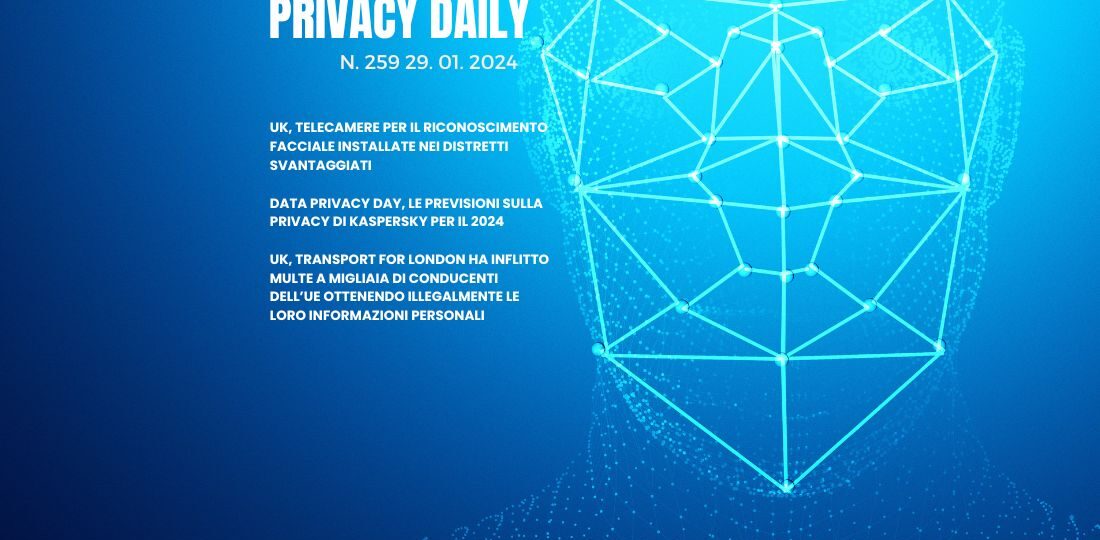VERSIONE ITALIANA
UK, TELECAMERE PER IL RICONOSCIMENTO FACCIALE INSTALLATE NEI DISTRETTI SVANTAGGIATI
In Inghilterra la Southern Co-op, utilizza le telecamere con riconoscimento facciale nelle sue 34 filiali che sono distribuite in diversi quartieri tra i quali 14 ritenuti “a basso reddito”. Il professor Pete Fussey, direttore del Centro per la ricerca sull’informazione, la sorveglianza e la privacy dell’Università dell’Essex, si ritiene preoccupato per l’utilizzo di questa tecnologia che potrebbe diventare “discriminatoria” soprattutto nei distretti “svantaggiati”. Ha sottolineato che questa scoperta rappresenta un altro esempio per il quale la sorveglianza si concentra maggiormente sulle minoranze e su coloro che sono svantaggiati dal punto di vista socioeconomico. La Southern Co-op ha dichiarato dal canto suo di non aver considerato il grado di degrado di un’area o altre informazioni demografiche al momento di installare queste telecamere.
https://www.theguardian.com/uk-news/2024/jan/27/facial-recognition-cameras-in-supermarkets-targeted-at-poor-areas-in-england
DATA PRIVACY DAY, LE PREVISIONI SULLA PRIVACY DI KASPERSKY PER IL 2024
Secondo l’ultima ricerca diffusa da Kaspersky, i dispositivi indossabili che si basano sull’utilizzo della intelligenza artificiale potrebbero sollevare preoccupazioni riguardo alla privacy degli utilizzatori. L’aumento nell’uso di dispositivi come smartwatch e occhiali intelligenti potrebbe portare all’acquisizione e all’elaborazione di una quantità sempre maggiore di dati personali degli utenti e quindi anche a doverli custodire e trattare in maniera adeguata anche sotto il profilo della privacy. La diffusione in maniera massiccia di tecnologie come la realtà aumentata e la realtà virtuale richiederà nuovi standard in materia di privacy. L’uso sempre più diffuso di queste tecnologie potrebbe mettere in luce la necessità di regolamentazioni più stringenti per garantire la privacy degli utenti e prevenire l’abuso dei dati. Ma la La crescente diffusione degli assistenti bot, che utilizzano l’elaborazione del linguaggio naturale (NLP), offre invece un’opportunità interessante per migliorare la privacy degli utenti in diversi settori anche commerciali.
https://www.zawya.com/en/press-release/research-and-studies/amid-international-data-privacy-day-kaspersky-shares-privacy-predictions-for-2024-vtfrgl6u
UK, TRANSPORT FOR LONDON HA INFLITTO MULTE A MIGLIAIA DI CONDUCENTI DELL’UE OTTENENDO ILLEGALMENTE LE LORO INFORMAZIONI PERSONALI
Secondo un rapporto pubblicato da Guardian c’è stata una massiccia violazione dei dati da parte di Transport for London (TfL), che ha ottenuto illegalmente informazioni personali di migliaia di persone provenienti dalla UE. . Secondo le norme sulla protezione dei dati post-Brexit, il governo britannico non può accedere automaticamente ai dati dei cittadini dell’UE per reati non penali ma molti cittadini dell’UE hanno ricevuto multe salate dopo aver visitato Londra ed aver guidato nella zona denominata ULEZ. La normativa Ulez richiede infatti che i conducenti non britannici si registrino presso un partner Ulez 10 giorni prima di entrare in città. Il deputato belga Michael Freilich ha scoperto la violazione e ha presentato una richiesta di informazioni che ha rivelato che le informazioni e i dati personali dei conducenti belgi erano stati ottenuti illegalmente da TfL. TfL si è difesa affermando che le leggi locali consentono la condivisione delle informazioni dei proprietari dei veicoli per l’applicazione delle norme sul traffico.
https://www.jurist.org/news/2024/01/the-guardian-uk-transportation-agency-illegally-obtained-personal-data-in-order-to-issue-fines-to-eu-drivers/
VERSIONE INGLESE
UK, FACIAL RECOGNISATION CAMERAS INSTALLED IN DISTRICTS
In England, the Southern Co-op, uses facial recognition cameras in its 34 branches which are spread across several districts including 14 deemed ‘low income’. Professor Pete Fussey, director of the Centre for Information, Surveillance and Privacy Research at the University of Essex, is concerned that the use of this technology could become ‘discriminatory’ especially in ‘disadvantaged’ districts. He emphasised that this discovery is another example where surveillance focuses more on minorities and those who are socio-economically disadvantaged. The Southern Co-op stated that they did not consider the degree of deprivation of an area or other demographic information when installing these cameras.
https://www.theguardian.com/uk-news/2024/jan/27/facial-recognition-cameras-in-supermarkets-targeted-at-poor-areas-in-england
DATA PRIVACY DAY, KASPERSKY’S PRIVACY PREDICTIONS FOR 2024
According to the latest research released by Kaspersky, wearable devices that rely on the use of artificial intelligence could raise privacy concerns for users. The rise in the use of devices such as smartwatches and smart glasses could lead to the acquisition and processing of an increasing amount of users’ personal data and thus also to the need to store and process it in a privacy-friendly manner. The massive spread of technologies such as augmented reality and virtual reality will require new privacy standards. The increasing use of these technologies may highlight the need for stricter regulations to guarantee users’ privacy and prevent data abuse. But the growing popularity of bot-assistants, which use natural language processing (NLP), offers an interesting opportunity to improve user privacy in several areas, including business.
https://www.zawya.com/en/press-release/research-and-studies/amid-international-data-privacy-day-kaspersky-shares-privacy-predictions-for-2024-vtfrgl6u
UK, TRANSPORT FOR LONDON FINED THOUSANDS OF EU DRIVERS BY ILLEGALLY OBTAINING THEIR PERSONAL INFORMATION
According to a report published by the Guardian there was a massive data breach by Transport for London (TfL), which illegally obtained personal information of thousands of people from the EU. . Under post-Brexit data protection rules, the UK government cannot automatically access EU citizens’ data for non-criminal offences, but many EU citizens have received hefty fines after visiting London and driving in the ULEZ. The Ulez legislation in fact requires non-British drivers to register with a Ulez partner 10 days before entering the city. Belgian MP Michael Freilich discovered the violation and submitted an information request which revealed that the Belgian drivers’ information and personal data had been illegally obtained by TfL. TfL defended itself by claiming that local laws allow the sharing of vehicle owners’ information for traffic enforcement purposes.



